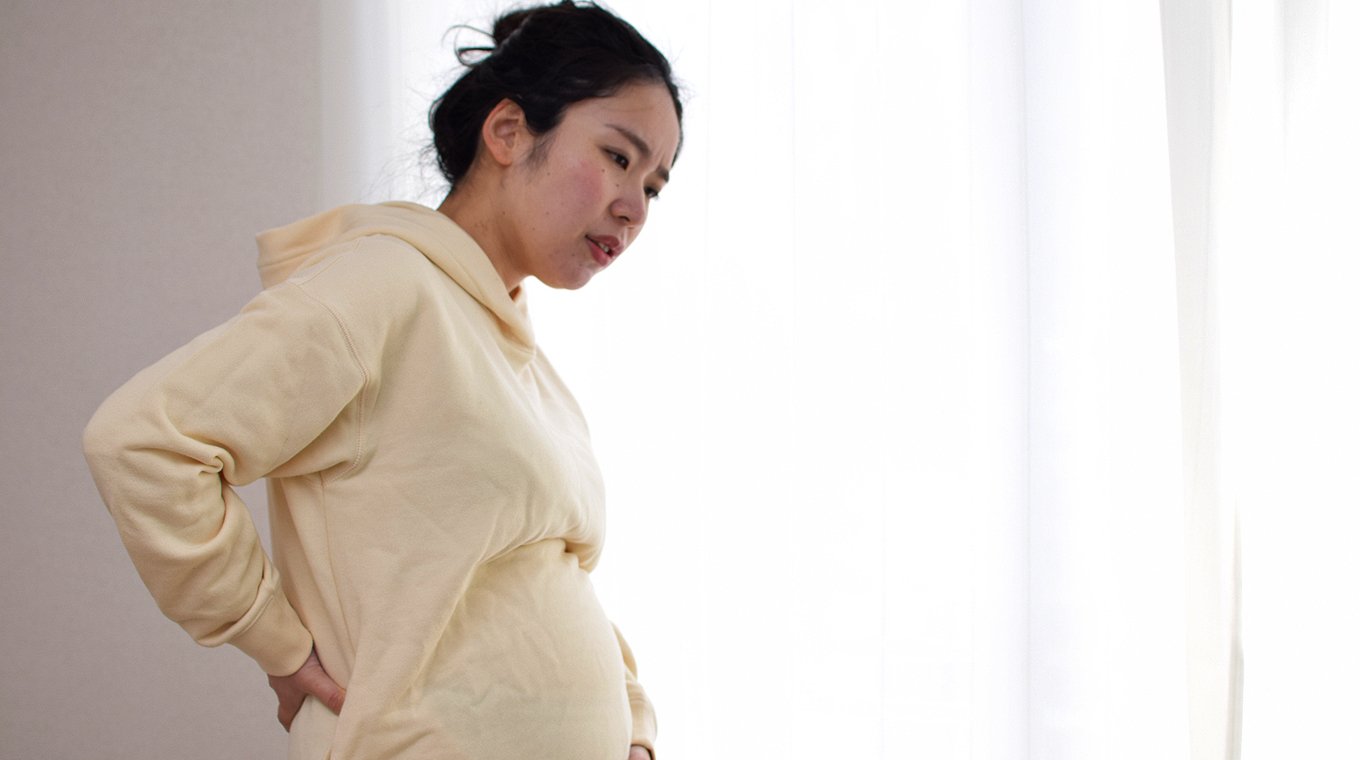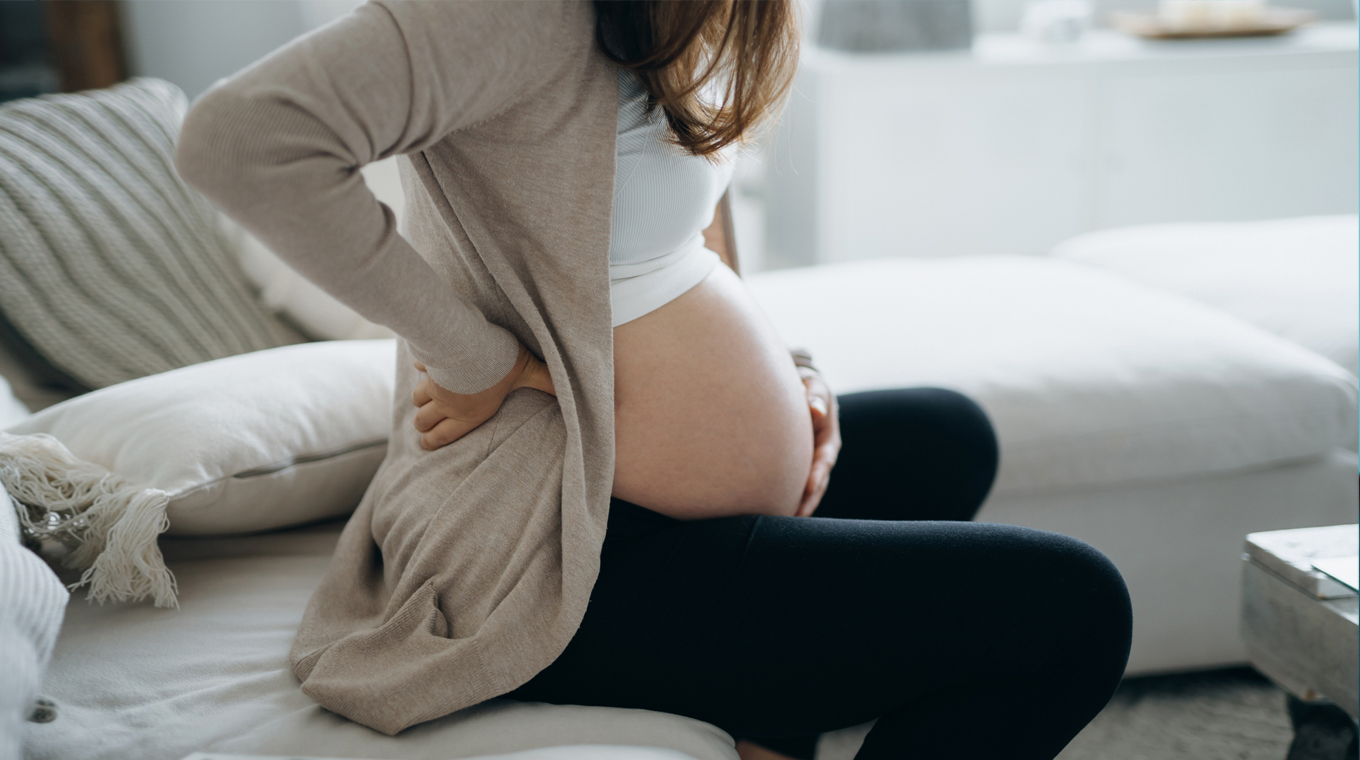In this article
According to an analysis of the databases in PubMed, half of all pregnant women experience pregnancy-related lower back pain. Of those, 80% say back pain affects their daily activities. If you’re experiencing lower back pain from pregnancy, relief is possible — here’s what you need to know.
Back pain during pregnancy: Cause and effect

During pregnancy, your body produces a hormone called relaxin that assists in preparing for childbirth. Relaxin loosens the joints and ligaments in your uterine muscles and cervix, while simultaneously relaxing the ligaments that support your spine. Without spine support, back pain is inevitable.
As the uterine lining thickens and the pregnancy progresses, the uterus grows, making room for baby. This growth can also contribute to lower back pain because the center of gravity shifts, as does your posture, which also increases back discomfort. Back pain is to be expected during pregnancy and is completely normal, but there are ways to combat the pain.
How to relieve low back pain in early pregnancy

There are several ways expectant mothers can relieve lower back pain. First and foremost, it’s important to be mindful of how you’re moving your body. Prior to pregnancy, working on strengthening your core can be helpful. If you’re already pregnant, you can perform core-strengthening exercises to alleviate back pain.
Dr. Jessica Matthews, a health and wellness coach, says pregnant women can exercise to strengthen the muscles of the core that help to stabilize the spine and thereby minimize back pain and discomfort. She recommends limb raises.
“Begin in a hands and knees position and slowly lift your left arm out while lifting your right leg for eight seconds. Switch to your right arm and left leg and repeat the exercise to engage your core back muscles while keeping your spine in a neutral position. Pool exercises, such as water aerobics, can also help relieve the pressure on your lumbar spine,” advised Matthews, who serves as director of the Master of Kinesiology in Integrative Wellness program at Point Loma Nazarene University.
Practicing mindfulness, getting enough rest, incorporating deep breathing strategies and even light yoga can also be effective remedies for back pain. Products like belly bands and maternity tape offer back support to help alleviate pain, and some expectant moms have had success using pregnancy pillows and prenatal massage.
Often, something as simple as a warm bath is enough to ease the pain. “A warm Epsom salts bath soothes my aching back,” mom Abrill A. previously told Mom.com.
Doula Becky Hands — author of The Little Book Of Self-Care For New Mums — seconds the idea of using Epsom salts for pain and for other ailments, like cramping, that occur during pregnancy. “The salt has a drawing affect on the muscles, so it draws out all of the sticky lactic acid — and all of the by-products — because your lymph system is slower during pregnancy,” Hands told Yahoo Health.
What to do if you experience extreme back pain during pregnancy

Overall, lower back pain during pregnancy is a common occurrence and usually nothing to worry about. Proper rest, adequate movement and exercise, and a combination of relaxation techniques and the use of lumbar support products should relieve lower back pain. But some back pain may indicate something more serious and merits a consultation with your doctor.
Sciatica
Some pregnant women experience sciatica pain during pregnancy. Sciatica occurs when a bulging disk in the spine presses against nerves, causing back pain to radiate down into the leg and cause numbness.
As painful as it is, sciatica is not harmful to your baby. “As a result of the weight gain, there can be a lot more aches and pains. And sometimes in a second pregnancy, there are even earlier and more exaggerated symptoms than before,” OB-GYN Rebecca Starck, MD, told Cleveland Clinic.
Dr. Starck recommends several ways of relieving the pain of sciatica during pregnancy:
- Warm showers
- Use a heating pad
- Practice yoga
- Massage therapy
- See a chiropractor
- Talk to your doctor about medication for pain relief, such as Tylenol
- Ask your doctor if physical therapy would be appropriate
Pre-term labor
Back pain that won’t let up or that increases in intensity should be addressed by a health care provider, as it can be indicative of preterm labor.
Graham’s Foundation is a support organization for parents of preemies. The website offers a forum where parents can connect and share their stories. In an article chronicling the signs of premature labor, one forum user named Jennifer relayed her main symptom.
“Back pain! Unbearable back pain! It turns out that it was back labor and my contractions weren’t even showing up on the monitor because they were all in my back, not uterus.”
When to seek immediate medical attention
If your back pain is accompanied by the following symptoms it warrants an immediate call to your doctor:
- Cramps or contractions at regular intervals
- Vaginal discharge or bleeding
- Fever
- Numbness in the extremities
- Pain when urinating





